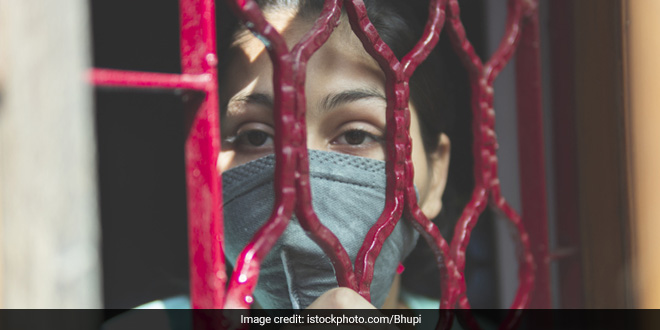Highlights
- 80 per cent of the coronavirus cases in India are asymptomatic: ICMR
- Asymptomatic patients don’t show any symptoms for coronavirus
- Finding such patients is a really difficult task: Doctors
New Delhi: “80 per cent of the coronavirus cases in India are asymptomatic. Our biggest worry is on their detection. There is no other way than contact-tracing,” said Dr Raman R Gangakhedkar, a senior scientist at the Indian Council of Medical Research (ICMR) to NDTV. So, what does ‘asymptomatic’ actually mean and why is it proving to be a challenge in India’s fight against coronavirus. NDTV speaks with top doctors to know all about it.
What Asymptomatic Actually Means In The Context Of Coronavirus?
In simple terms, asymptomatic means a person who doesn’t show any symptoms of the disease. So, a person could be infected with COVID-19 but may not show any symptoms of the disease such as cough, cold, fever and others.
Why Is Being Asymptomatic A Cause For Concern?
It is a worry because a patient who has COVID-19 and is asymptomatic could unknowingly spread the infection, because even though there are no visible symptoms but the person is still infectious and has the potential to spread the virus to others. And also by virtue of being asymptomatic, the person may also not qualify for immediate testing and may slip detection, till the scope and reach of coronavirus testing are widened.
Dr SK Sarin, Chairman Delhi Government COVID Panel while explaining the meaning of the term said,
A true asymptomatic is defineD as a person who harbours the infection, can transmit the infection to someone but does not get the disease. In COVID-19 cases, however, from the past cases, we know that the fair asymptomatic patients over a period of time develop the symptoms for the disease.
Highlighting the challenges faced by the authority, Dr Sarin added,
In this case, our challenge is to identify those people and test just when the patient becomes a pre-symptomatic (which is 3 days before the symptoms occur in an individual) from asymptomatic, when he starts to develop the symptoms like fever, cough and others. In this period, the patient is most likely to spread the infection and the identification of such patients is a huge-huge challenge. And the other challenge is to manage these asymptomatic patients, we need to make sure that they are kept in some kind of isolation and if they develop symptoms, we need to track who all they were in contact with to further check the spread of the virus.
Dr. Paramesh Shamanna, Diabetes Centre Bengaluru talking about the pros and cons of asymptomatic patients said,
Being a patient with asymptomatic symptoms have both good and bad side to it. If we look at the positive side, having asymptomatic symptoms for this infection means that the patient has higher immunity, which means chances of coming out of this highly contagious infection are high. But the downside of this is the biggest worry for the community. Being asymptomatic still means that the patient is a carrier of the infection and poses a potential to spread the virus. The only precaution that one can take at this point in time is social distancing.
Talking about the common queries about the asymptomatic patients like do they never show any symptoms or do they automatically recover from the virus, Dr Santosh K Singh, Endocrinologist in Patna added,
[corona_data_new]No, the asymptomatic patients won’t just recover on their own. They are still infected with the disease and at some point, they will need medical care. Usually, COVID-19 patients start to show signs within 2 to 14 days. If the person is asymptomatic the symptoms take time to appear, usually by the 14th day it starts to appear.




























